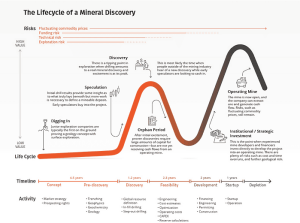Share this page:
Inflation now stands at a whopping 4.2% according to the latest Consumer Prices Index. This means that prices are rising at the fastest rate in almost ten years!
So what does rising inflation mean for savers, mortgage holders and investors? Let’s take a look.
What is the latest inflation figure?
The Office for National Statistics (ONS) publishes its Consumer Prices Index (CPI) every month. The latest figure, for October 2021, suggests inflation is now running at 4.2%. This means price rises have accelerated significantly in the past month, given the CPI was 3.1% for September.
The ONS says the current inflation rate has been driven by the rising cost of transport, energy and second-hand cars.
What is the Consumer Prices Index?
The CPI is one measure of inflation, and it is calculated by looking at price rises for a typical ‘basket of goods.’ Critics of the index claim that it doesn’t give a true reflection of the rate that prices are rising due to the fact that the CPI does not take into account price rises of fixed assets, such as stocks or house prices.
Whatever your views on the CPI, it’s clear that inflation is now far higher than the government’s 2% annual inflation target.
What does rising inflation mean for you?
The impact of rising inflation will depend on whether you’re a mortgage holder or investor and whether you have money stashed in a savings account. Of course, it is possible that you fall into each of these categories.
1. The impact for mortgage holders
If you have a mortgage, then high inflation may be good news, particularly if you’re in the middle of a long-term fixed-rate deal. That’s because high inflation effectively eats into your debt, so the value of your mortgage is effectively reduced thanks to the inflation monster.
However, if your term is nearly ending, or you’re on your lender’s standard variable rate (SVR) then you may face higher mortgage costs in the near future.
That’s because the Bank of England (BoE) may soon be forced to raise its base rate to curb inflation, which would almost certainly make new mortgages more expensive. However, the BoE has so far resisted calls to raise its base rate, and many believe the central bank won’t now act until next year following its most recent base rate decision.
2. The impact for investors
Rising inflation can negatively impact stock prices. That’s because businesses often struggle to pass on rising costs to customers. This can impact profits, sending share prices tumbling.
Bond prices also feel the effects of inflation. That’s because inflation effectively erodes the purchasing power of a bond’s future cash flow, which can harm returns.
3. The impact for savers
There’s no doubt that rising inflation is very bad news for savers. That’s because if you have money in a normal savings account, you can’t earn anything close to the current inflation rate. As a result, your savings account is actually a ‘losings’ account, as your cash is losing its value.
Some savers are now turning to fixed-rate bonds for higher returns, though if you decide to explore this route, it’s worth remembering that your money is locked away for the duration of the fixed term. This carries its own risks if inflation continues to accelerate in future.
It’s also worth knowing that while fixed-rate savings accounts beat easy access accounts, even the longest five-year fixed deals don’t pay anywhere near 4.2%.
What’s a good hedge against rising inflation?
Sadly there is no sure way to hedge against rising inflation. That said, many people are now looking away from traditional savings in order to chase higher returns.
For example, some feel that buying property is a decent way to ward off inflation given that house prices are expected to continue rising over the next few years. Others suggest buying stocks and bonds, hoping they will outperform cash in the long term. Traditional fixed assets are a popular choice too. Some investors are now turning their attention to gold or other commodities to protect the value of their wealth.
Was this article helpful?
YesNo
About the author
Karl is a writer specialising in investing and personal finance content. He regularly contributes articles on savings, bank accounts, mortgages, and loans. He was previously a Personal Finance Writer for MoneySavingExpert.
Share this page:
Some offers on The Motley Fool UK site are from our partners — it’s how we make money and keep this site going. But does that impact our ratings? Nope. Our commitment is to you. If a product isn’t any good, our rating will reflect that, or we won’t list it at all. Also, while we aim to feature the best products available, we do not review every product on the market. Learn more here. The statements above are The Motley Fool’s alone and have not been provided or endorsed by bank advertisers. John Mackey, CEO of Whole Foods Market, an Amazon subsidiary, is a member of The Motley Fool’s board of directors. The Motley Fool UK has recommended Barclays, Hargreaves Lansdown, HSBC Holdings, Lloyds Banking Group, Mastercard, and Tesco.
This post was originally published on Motley Fool







